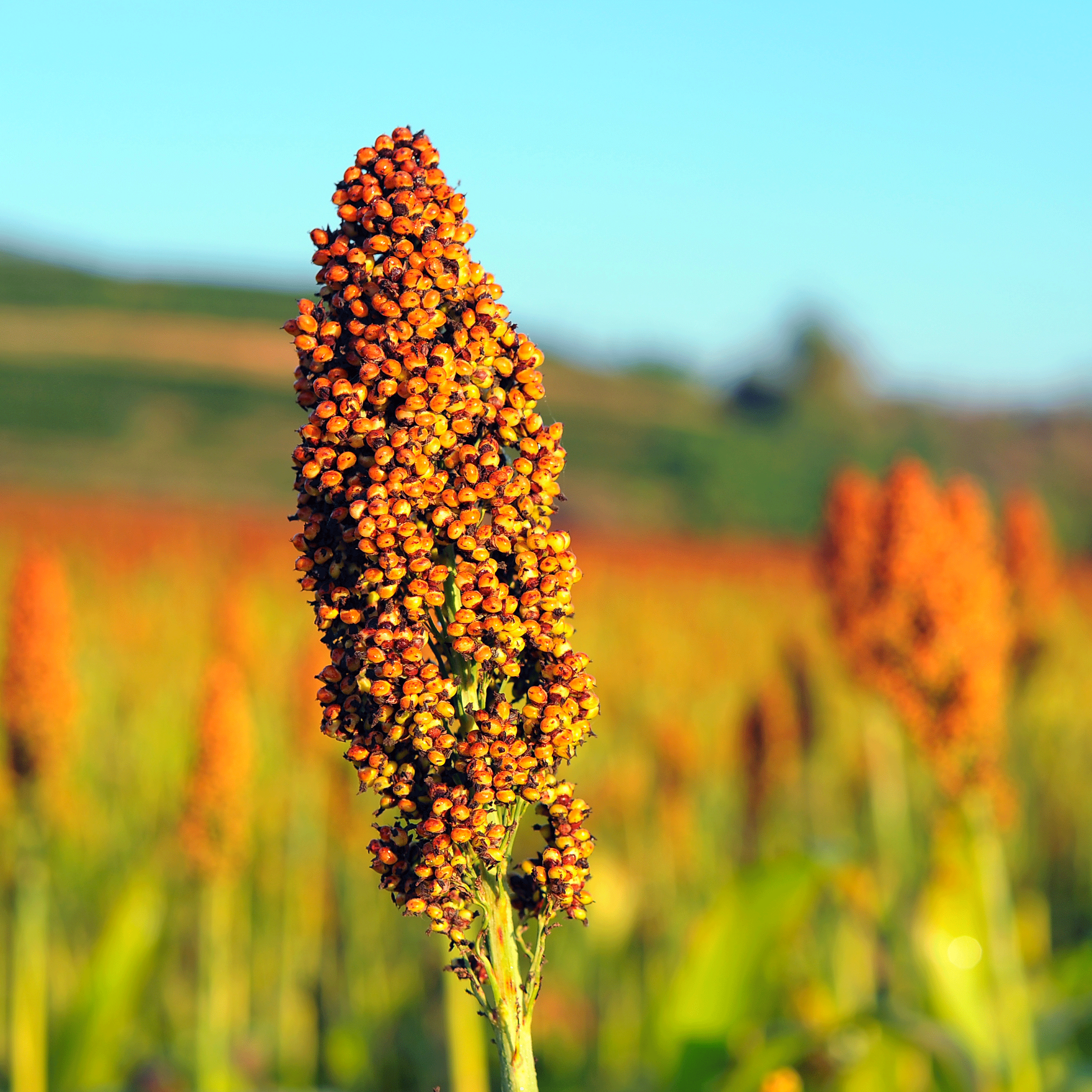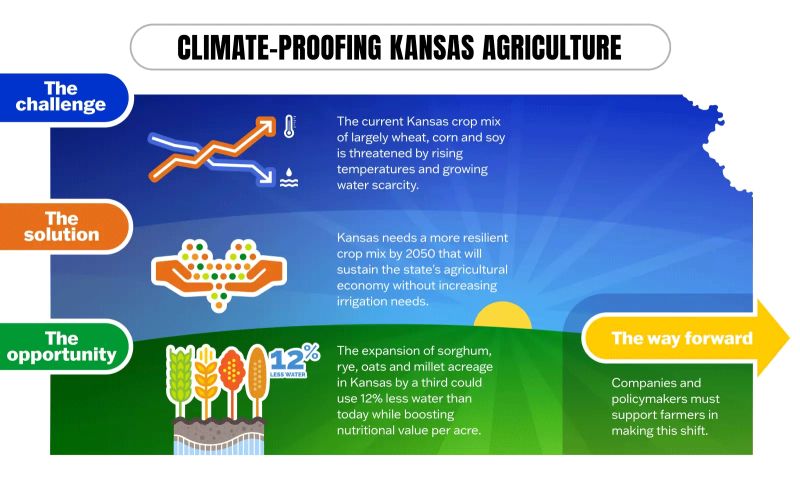The path toward a climate-resilient future for Kansas agriculture
A diverse crop mix can keep farms productive in a hotter, drier future

Kansas is the breadbasket of the U.S., producing more wheat that any other state and growing significant amounts of corn and soybeans as well. Climate change is starting to threaten historic productivity gains and make yields more variable. Higher temperatures mean thirstier crops and drier soils, but adding more irrigation water isn’t an option: rainfall is becoming less dependable, and groundwater levels are being depleted.
The path forward is to support farmers in increasing agricultural resilience. A new EDF report — Kansas in 2050: A pathway for climate-resilient crop production — finds that adding sorghum, rye, oats and millet acreage in Kansas would use 12% less water than today, while boosting nutritional yield per acre.
Sustainable and resilient crop production is achievable
Kansas farmers are already exploring several adaptation strategies to make their farms more resilient to changing climate conditions. One promising approach involves switching to crop alternatives that require less water, effectively climate-proofing agriculture for a drier climate.
Diversifying Kansas crop production could be accomplished by swapping out some current wheat, corn and soybean crops with sorghum, rye, oats and millet — increasing their acreage across the state by around 30%. Sustainable and resilient crop production in Kansas is within reach, but farmers can’t do it alone.

Support farmers as they adapt to a drier future
Current policy and market incentives make it difficult for farmers to grow alternative crops. The crop-switching scenario described above will require policy and market changes that support this large-scale shift by reducing the risk farmers face by growing something new and ensuring there is financial opportunity from doing so.
For example, the next farm bill can invest in financial and technical assistance for crop diversification so that farmers can continue to feed a growing population. Agricultural lenders can develop financial products that reward improved resilience, and food companies can invest in creating markets for alternative crops.
MEDIA CONTACT
Deja Curtis
(202) 695-3110 (office)












